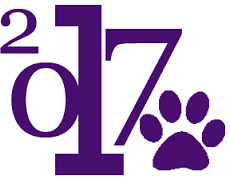NEW 2017 Relevant Estate Tax Planning Numbers

Each year certain figures are updated for inflation. The following are a few of the relevant 2017 estate tax and estate income tax numbers:
1. The highest tax rate for estate and trust income is 39.6% and starts at income of only $12,500.
2. In contrast, the highest tax rate for individual income is 39.6% and starts at income at $418,400 (for a single individual).
The estate and trust income tax rate of 39.6% starts at a MUCH lower threshold than an individual. Thus, assuming that the estate and/or trust document permit such distributions, the fiduciary may want to make distributions of income from the estate and/or trust to a beneficiary. Thus, such income would be taxed at an individual’s lower rate. Consult with your tax attorney or CPA to confirm whether this planning will work in your particular situation.
3. The applicable exclusion amount for gift and estate tax purposes will be $5,490,000, up from $5,450,000 in 2016. As this exclusion keeps rising, fewer and fewer people will be subject to estate tax.
4. The generation skipping transfer tax exemption will be $5,490,000 up from $5,450,000 in 2016.
5. The gift tax annual exclusion remains at $14,000.
6. The limit on the decrease in value that can result from the use of special valuation will be $1,120,000, up from $1,110,000 in 2016.
7. The gift tax annual exclusion amount for gifts made to non-citizen spouses will be $149,000, up from $148,000 in 2016.
8. The threshold for reporting gifts from a non resident alien individual or a foreign estate will be $100,000.
9. The threshold for reporting gifts from foreign corporations and foreign partnerships will be $15,797, up from $15,671 in 2016.
10. The foreign earned income exclusion amount will be $102,100, up from $101,300 up from 2016.
ADVICE: Review these numbers to plan for 2017 and analyze whether you need to make any changes in 2016. Be sure to discuss with your tax attorney and CPA the high tax cost of keeping estate or trust income “trapped” inside an estate or trust. Finally, while federal estate tax may not not now be relevant to you because of the high exclusion amount, it is that much more important to review your documents if those documents were drafted when the exclusion amount was smaller.
WORD OF THE WEEK: “Special Use Valuation” is a “special” valuation allowed under the Internal Revenue Code (the “Code”) for certain farms and trade or businesses if such farm or trade or business makes up more than 50% of a decedent’s estate. Many times the largest asset a person may own is a farm or property that may not be not used at its “highest and best use.”
For example, if Sally dies owning a farm next to Yellowstone National Park, such farm property has to be valued at its fair market value for federal estate taxes. Generally, fair market value is the price agreed to by an objective willing buyer and seller and would probably be determined based upon the property’s highest and best use. The highest and best use for the farm property may be development (hotels and tourist attractions). If, however, the property meets the “special use” valuation provisions of the Code, then Sally’s personal representative may be able to reduce the value of Sally’s property and accordingly, reduce the amount of estate taxes. There are strict requirements to qualify for this reduction.
GENEROSITY IS A KEY TO HAPPINESS …REACH OUT AND HELP SOMEONE TODAY! 😎

